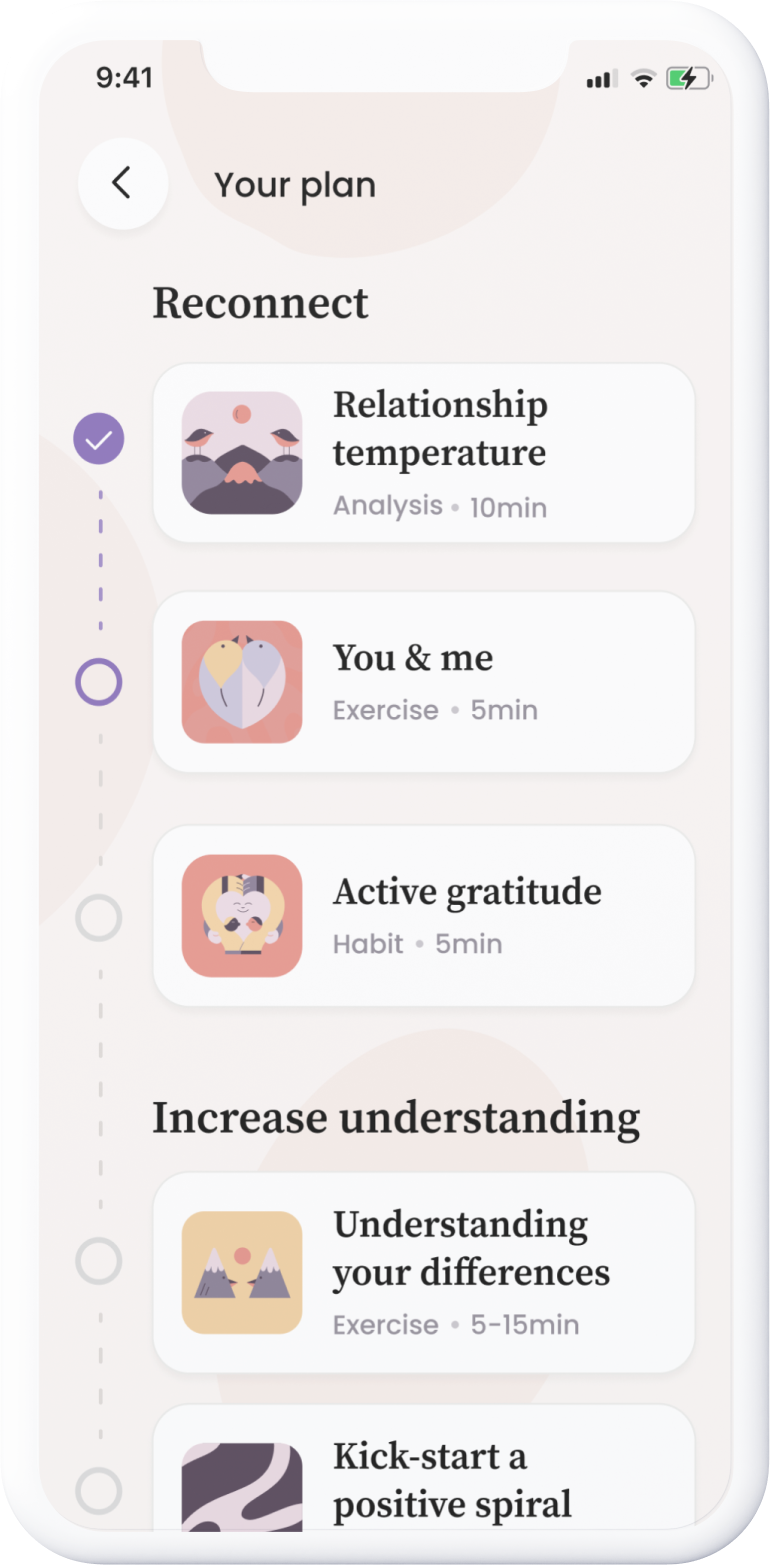
Are you in an unhealthy relationship? What are the warning signals, or red flags, indicating that your relationship is toxic? Do you often doubt if the relationship is good enough and wonder if it's time to seek help or even consider leaving the relationship?
Psychologist and researcher John Gottman, a renowned expert in the field of psychology, has conducted extensive research on warning signs within romantic relationships. His observations have revealed that when these signs persist over time, they can serve as indicators of a couple's potential separation.
Gottman identifies these warning signs as the 'Four Horsemen of the Apocalypse,' representing negative patterns in how couples communicate with each other. These behaviors are often recognized by psychologists and couples therapists, particularly in couples seeking therapy.
Signs that your relationship might be unhealthy
Let's delve into the 'Four Horsemen of the Apocalypse' as described by John Gottman:
- Criticism: This involves launching critical attacks on a partner's character or personality, such as saying, "You are hopeless! You never care about me!"
- Contempt: Contemptuous behavior includes openly condescending actions like rolling one's eyes, sneering, or making mocking remarks.
- Defensiveness: Reacting defensively when criticized tends to escalate conflicts. While it's natural to want to defend oneself and explain, it often leads to further criticism of the other person.
- Stonewalling: In relationships where one partner frequently criticizes, expresses contempt, or becomes defensive, the other partner may withdraw. While silence can be a form of self-preservation, it often contributes to communication breakdown and emotional distance in the relationship.
It's crucial to note that most individuals in long-term relationships may exhibit these behaviors on occasion, either in themselves or their partners. The issue becomes serious when these patterns dominate communication.
When the 'Four Horsemen' frequently manifest in a relationship, and at least one partner experiences consistent emotional strain, it can lead to significant problems. Both partners often feel misunderstood and isolated. Nevertheless, there are strategies to reverse this trend and foster greater closeness.
Are you exposed to threats, violence, or psychological abuse in your relationship? Read more about serious warning signs at the bottom of the page.
Tips to promote healthy relationship behaviors
Show curiosity and interest!
Even after spending considerable time together, it's common for behaviors that signify interest in each other's lives to wane. Make an effort to ask questions, even when you assume you know your partner's thoughts and feelings. Practice active listening without immediately asserting your own opinion.
Small acts of love
Small, everyday acts of affection can bring about positive changes in stagnant relationships. They don't have to be grand gestures. Consider surprising your partner with their favorite snack, offering a warm morning hug, or delivering a sincere compliment. Show extra care during challenging times. Challenge yourself to perform these acts, even when you're not in the mood, and observe the results.
Accept each other as you are
A vital aspect of successful relationships is demonstrating acceptance and compromise regarding differences. Let go of the notion that there's a single "correct" or "best" way to be. Explore whether your partner's seemingly irritating behaviors could contribute positively to your relationship. Alternatively, find ways to navigate your differences in a manner that minimizes their impact. Start by focusing on what you can do, rather than expecting your partner to change.
Engage in enjoyable activities together
Rather than waiting for spontaneous feelings of desire and positivity, actively carve out positive moments together. Put effort into participating in shared activities, even when motivation is lacking. Remember that these activities don't need to be extravagant; simple pleasures like playing a video game together or watching an engaging TV series can be just as effective as a weekend getaway.
Are there tests that can tell me if I should stay or go or toxic partner tests?
Sometimes you hear about tests that can determine whether you should stay in a relationship or tests that tell if your partner is toxic. These tests are meant to provide answers to the question "should I stay or go?" or to give an indication of when it might be time to end a relationship. Even in couples therapy, it's common for couples to seek clear advice on when to separate.
However, it's not as simple as checking off symptoms on a list. All couples go through tough times occasionally – it can be challenging, and you may have doubts. Making a final judgment on the existence of the relationship is not possible in such situations. But if you find yourself contemplating whether to stay or go frequently, it could be an indication that you, as a couple or as an individual, may need external assistance.
Your relationship is influenced by various factors, including your individual personalities and how well you feel understood by each other. External circumstances that affect your needs and circumstances also play a role. Understanding the dynamics of your relationship is essential for taking care of each other and the relationship itself. This makes it easier to make well-informed decisions if you're considering possibly ending the relationship or deciding whether to stay or go.
It can be challenging to pinpoint what's working well and what might be causing issues on your own. That's why we've developed the Relationship Temperature In our relationship app Ally. It's a test where you answer questions about how you currently perceive different aspects of your relationship. Then you receive an analysis where you find out what your relationship needs right now and what are your strengths and challenges as a couple. The test is completely free and has been developed by us, licensed psychologists with extensive experience in couples therapy.
Warning signs of a destructive relationship
Various forms of violence, threats, and control can exist in close relationships. Psychological abuse can be challenging to detect, as it often insidiously enters a relationship, alternating with strong feelings of love and nurturing behaviors.
In an intimate relationship involving violence, you may experience a multitude of conflicting emotions toward your partner, with your feelings oscillating between deep love, tenderness, and fear. It's essential to take warning signs seriously. If you're exposed to threats, violence, or psychological abuse in your relationship, seeking help promptly is crucial.
Examples may include:
- Your partner behaves disrespectfully toward you by making jokes at your expense and looking down on your opinions and experiences.
- Your partner is controlling and displays jealousy. They have opinions about how you should dress, what you should say and do, and with whom you should socialize.
- Your partner scares you when they get angry. They may break things, make threats, push you, or approach you in a threatening manner.
- You begin to blame yourself if your partner behaves poorly or insensitively toward you. You may think that it's your fault, that they can't help it, and notice that your self-esteem has deteriorated.
Read more about domestic violence and how to seek help








